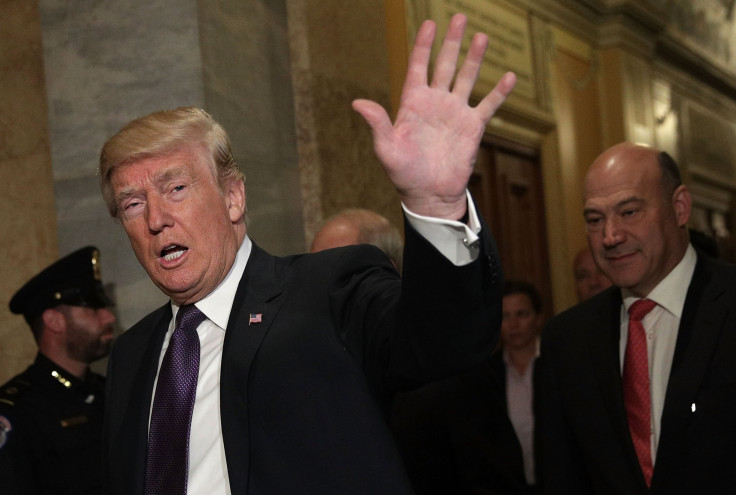Lawsuit: Trump Super PAC Took Illegal Donation From Private Prison Company
A leading private prison company illegally donated $225,000 to a political group supporting President Donald Trump during the 2016 election — and the Federal Election Commission (FEC) has failed to address the violation, according to a new lawsuit filed by a government watchdog. The FEC’s failure to enforce the law opens the door for government contractors to use campaign cash to influence government policy, a lawyer for the plaintiffs said.
One of the donations occurred the day after the Obama administration began to phase out private prisons, a move Trump reversed shortly after moving into the Oval Office.
The non-profit Campaign Legal Center (CLC) sued the FEC in federal court Wednesday for not responding to the organization’s 2016 complaint against GEO Group, a publicly traded private prison company worth $2.8 billion that operates 70 correctional facilities across the United States.
There’s no dispute about the fact that during the 2016 presidential election, GEO subsidiary GEO Corrections Holdings Inc. gave $225,000 to Rebuilding America Now, which billed itself as “the largest Super PAC supporting Donald Trump in the 2016 general election.” The lawsuit argues that these donations were illegal due to a federal ban on political donations by federal contractors. Despite FEC rules requiring the agency to respond to any complaint within 120 days, the CLC said the FEC — which is led by five commissioners, including three Republicans — hasn’t taken any action on the complaint.
An FEC spokesperson declined to comment on the suit. In an email, the GEO Group told International Business Times the company had acted legally.
“All of our political contributions to federal super PACs comply with all applicable federal laws and regulations and have been made by GEO Corrections Holdings, a legal entity which does not hold any federal contracts,” the company said.
GEO Corrections Holdings Inc. made two contributions to Rebuilding America Now in the lead-up to the 2016 election. The first, a $100,000 donation on August 19, came a day after then-Deputy Attorney General Sally Yates announced the Obama Justice Department would phase out the use of private prisons, citing a shrinking federal prison population and a government study that found private prisons “incurred more safety and security incidents per capita” than comparable publicly-run federal facilities. The move sent private prison stocks plummeting nearly 40 percent before rallying after Trump’s electoral victory. Less than two weeks after he was sworn in as Trump’s attorney general, Jeff Sessions rescinded Yates’ order. Less than months after that move, the Trump administration handed GEO Group a $110 million federal contract to build a immigrant detention center in Texas.
Mark Gaber, one of the CLC attorneys that filed the lawsuit, told IBT that GEO Group’s donations were a “brazen” violation of campaign finance law.
“It appears that a large contribution directly led to a policy change,” Gaber told IBT. “These laws are intended to stop the public’s money from being spent on something that isn’t smart simply because of large campaign contributions.”
Led by GEO and CoreCivic (formerly Corrections Corporation of America), the private prison industry has spent nearly $10 million on political campaigns since 2010, according to the National Institute on Money in State Politics. GEO also gave $250,000 to Trump’s inaugural committee, and this year the company moved its annual leadership conference to a Miami-area golf resort owned by the president.

The Federal Election Commission has been gridlocked in recent years, leading Democratic Commissioner Ann Ravel to call the commission “dysfunctional” in a New York Times opinion piece published after she resigned from the commision last year.
“Unfortunately, a controlling bloc of three Republican commissioners who are ideologically opposed to the F.E.C.’s purpose regularly ignores violations or drastically reduces penalties,” Ravel wrote. Democrats have put much of the blame for the FEC’s gridlock on former commissioner Don McGahn, who is currently the White House Chief Counsel.
Gaber said the CLC has received nothing but silence from the FEC in response to their initial complaint, prompting them to file the lawsuit.
“The FEC hasn’t told us anything, but it’s hard to imagine a more straightforward violation,” Gaber said. “You don’t want big companies seeking federal contracts to sway those decisions through political contributions.”
© Copyright IBTimes 2024. All rights reserved.





















